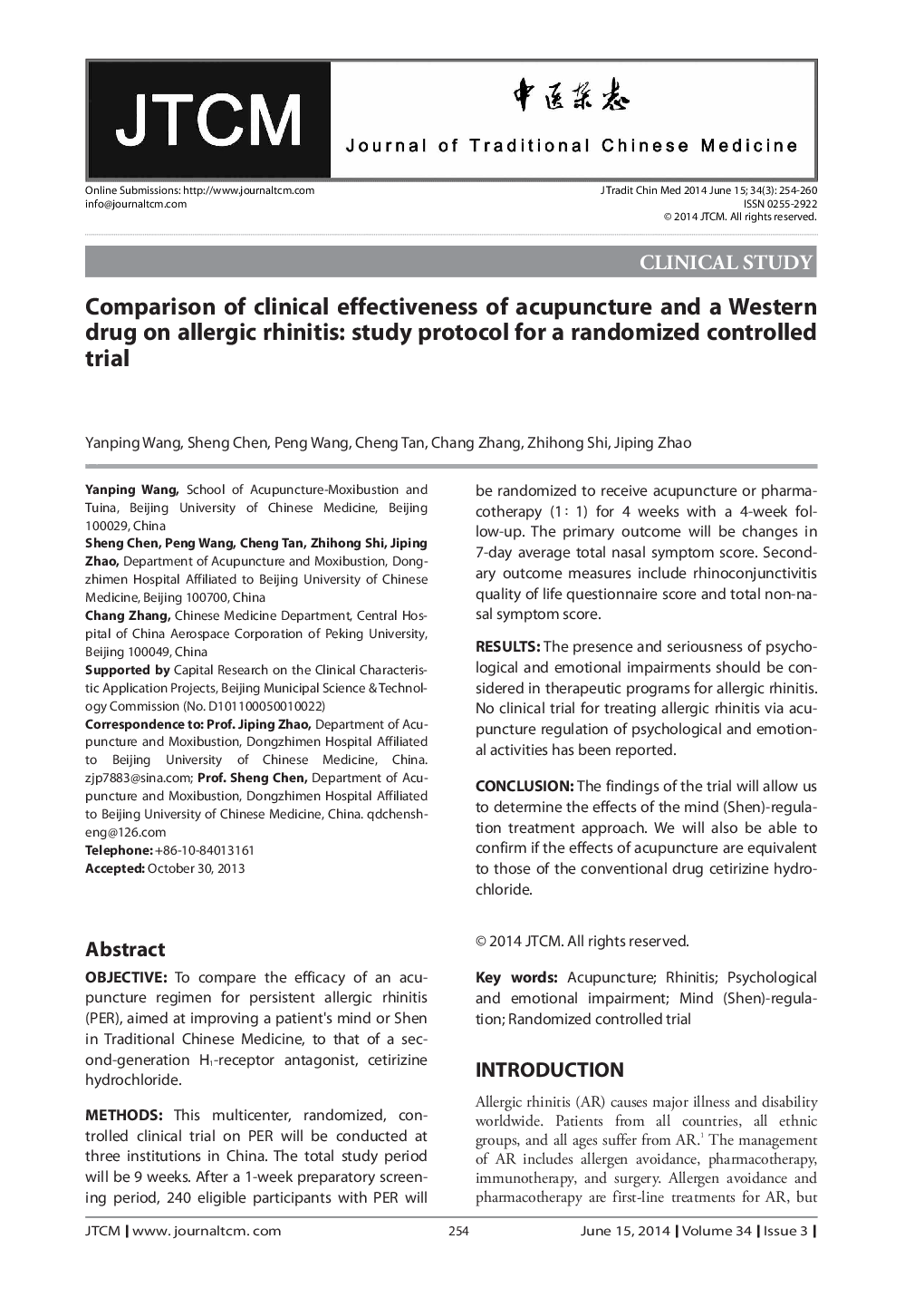| Article ID | Journal | Published Year | Pages | File Type |
|---|---|---|---|---|
| 4201057 | Journal of Traditional Chinese Medicine | 2014 | 7 Pages |
ObjectiveTo compare the efficacy of an acupuncture regimen for persistent allergic rhinitis (PER), aimed at improving a patient's mind or Shen in Traditional Chinese Medicine, to that of a second-generation H1-receptor antagonist, cetirizine hydrochloride.MethodsThis multicenter, randomized, controlled clinical trial on PER will be conducted at three institutions in China. The total study period will be 9 weeks. After a 1-week preparatory screening period, 240 eligible participants with PER will be randomized to receive acupuncture or pharmacotherapy (1: 1) for 4 weeks with a 4-week follow-up. The primary outcome will be changes in 7-day average total nasal symptom score. Secondary outcome measures include rhinoconjunctivitis quality of life questionnaire score and total non-nasal symptom score.ResultsThe presence and seriousness of psychological and emotional impairments should be considered in therapeutic programs for allergic rhinitis. No clinical trial for treating allergic rhinitis via acupuncture regulation of psychological and emotional activities has been reported.ConclusionThe findings of the trial will allow us to determine the effects of the mind (Shen)-regulation treatment approach. We will also be able to confirm if the effects of acupuncture are equivalent to those of the conventional drug cetirizine hydrochloride.
